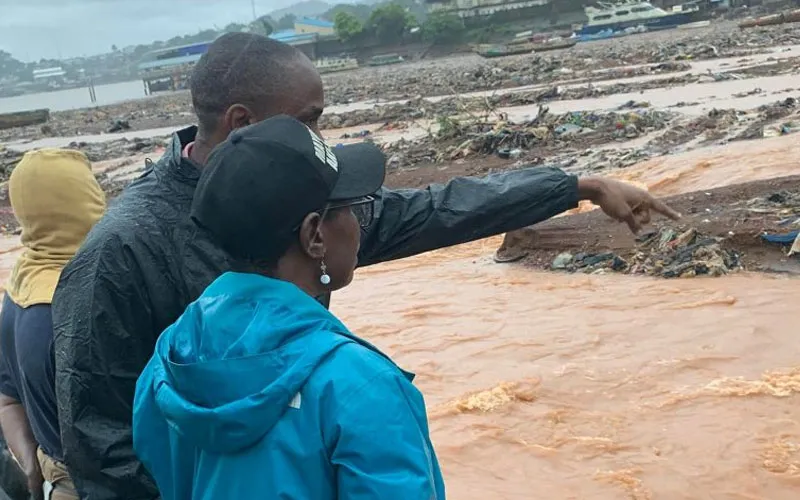Freetown, 03 September, 2022 / 6:33 pm (ACI Africa).
Every time that flooding, mudslides, fires and other disasters hit the Western communities of Sierra Leone, Culvert, a low land informal settlement in the East of Freetown is one of the places that are left battered the most, with victims mostly having to start life afresh.
In the recent flooding incidents that occurred from August 14 to 17 and between August 27 and 28, Culvert was the worst hit, according to an assessment that was conducted by Caritas Freetown.
The assessment that Caritas Freetown Executive Director, Fr. Peter Konteh, shared with ACI Africa indicated that 2,400 people, representing 85 percent of the slum community’s total population, were rendered homeless in the first flooding incident.
Additionally, 17 other communities were affected by the floods that occurred from August 14 to 17, including Congo Town Bridge where approximately 1,000 people were affected and Congo Town where an estimated 500 people were affected.
In the second flooding incident that occurred between August 27 and 28, an estimated 12,000 people were affected in Culvert alone when torrential downpour left houses clogged in mud, electricity poles fallen, descending boulders, among a series of other damages.








